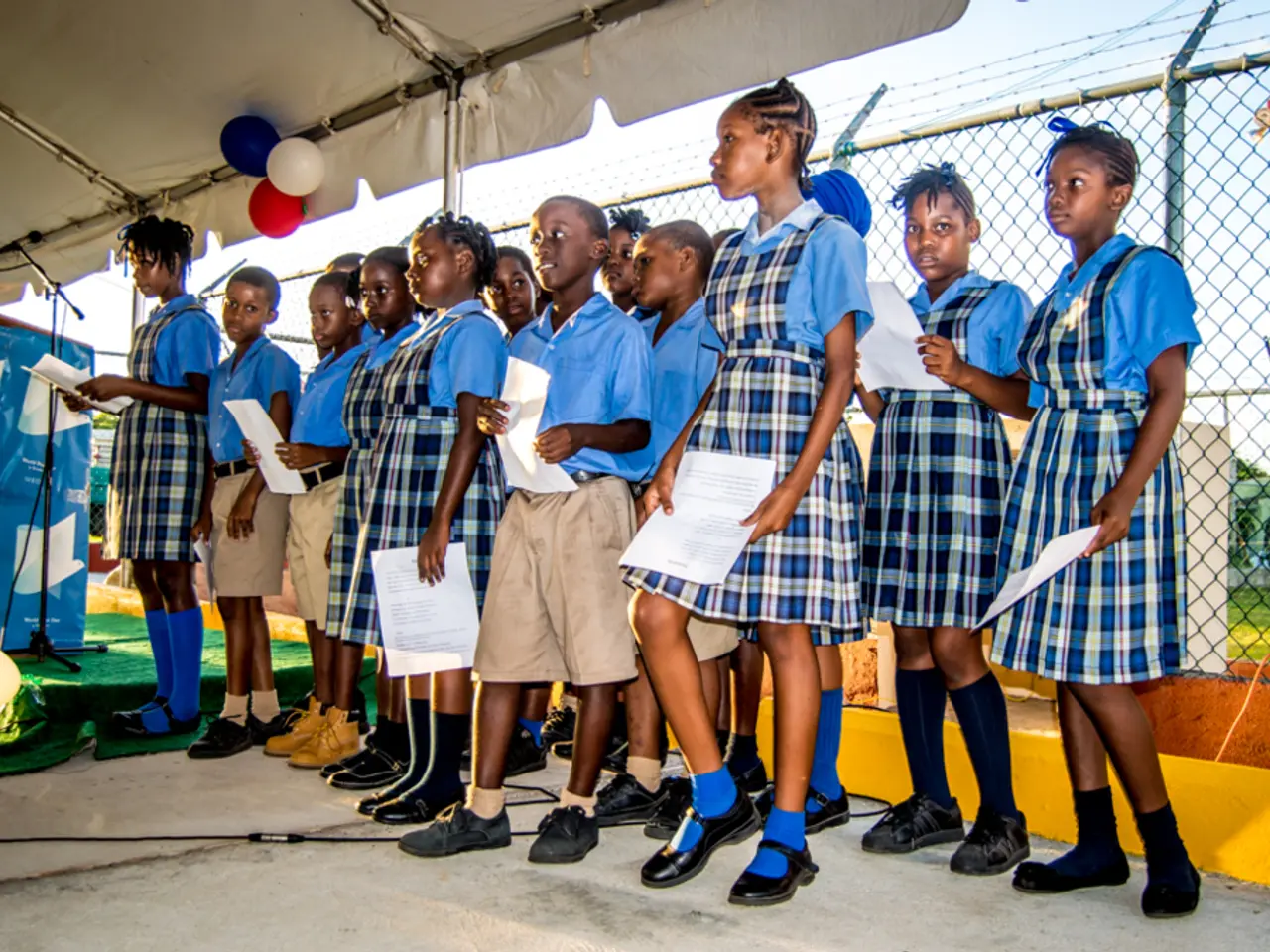School Cellphone Prohibition May Alter Equity, Digital Rights, and Local Governance
In the Brigantine Public School District of New Jersey, Superintendent Glenn Robbins is advocating for a balanced approach to cellphone use in schools. While he acknowledges concerns about distractions and cyberbullying, he emphasises the importance of teaching students how to interact with the digital world effectively, as they may well find themselves working in tech industries in the future.
Robbins raises concerns about equity issues related to students' access to technology for academic purposes. The lack of access to certain apps and programs at home can create an uneven playing field, potentially exacerbating social divides.
Arguments for and against a cellphone ban in schools are multifaceted. On one hand, a ban could reduce distractions, protect privacy and security, promote focus, and signal the value of mindful technology use. However, it could also limit educational opportunities and practical access, particularly among disadvantaged students who rely on phones for medical needs or safety.
Advocates of a ban argue that it could improve mental health by reducing anxiety related to constant phone alerts and FOMO (fear of missing out). It could also protect students from cyberattacks and exposure of sensitive data, and promote face-to-face interactions, skills essential for students' social development.
On the other hand, critics argue that cellphones can be important educational tools if integrated properly. Blanket bans may limit innovative teaching and students’ access to learning resources. Additionally, banning phones may disproportionately affect students who don’t have private or home internet access, potentially limiting their ability to use phones for homework or communication outside of school.
Robbins suggests that schools should focus on promoting digital literacy to inform students on proper device use. This includes integrating digital literacy curricula, establishing clear, consistent technology usage policies, encouraging role modeling by educators and staff, offering structured times or zones for phone use, and using positive reinforcement and consequences to encourage appropriate phone behavior.
The need for discussions about inappropriate cellphone use, involving local law enforcement, is also mentioned by Robbins. However, the article does not discuss any specific measures for guarding districts against AI deepfakes or managing screen time without banning technology.
The pandemic has affected students' access to technology for academic purposes, but it has not significantly altered how students and teachers view in-person school. Robbins suggests showing students the ethical use of devices to help them become successful citizens.
In summary, a cellphone ban in schools can protect mental health, improve focus, and promote equity and privacy, but may limit educational opportunities and practical access, especially among disadvantaged students. A combined approach that includes teaching digital literacy and establishing balanced use policies is key to promoting responsible technology use alongside protecting student well-being.
- Superintendent Glenn Robbins in the Brigantine Public School District of New Jersey advocates for a balanced approach towards cellphone use, acknowledging both distractions and digital learning opportunities.
- Robbins expressed concerns about equity issues related to students' access to technology for academic purposes, as a lack of consistent access can create uneven playing fields and exacerbate social divides.
- Arguments for and against a cellphone ban are multifaceted, including concerns about distractions, privacy, focus, and mental health, as well as educational opportunities, practical access, and the potential disadvantages faced by disadvantaged students.
- Advocates of a ban argue it could reduce anxiety, protect students from cyberattacks and sensitive data exposure, and promote face-to-face interactions, essential for students' social development.
- Critics, however, argue that cellphones can be important educational tools if properly integrated, as they may limit innovative teaching and student access to learning resources.
- Robbins suggests schools prioritize digital literacy to inform students on proper device use, by incorporating digital literacy curricula, establishing clear usage policies, role modeling from educators, offering structured phone-use times, and implementing positive reinforcement.
- The pandemic has not significantly altered the views on in-person school by students and teachers, but Robbins emphasizes the need for fostering partnerships with local law enforcement for discussions about inappropriate cellphone use and ethical device practices, rather than adopting strict technology bans.




